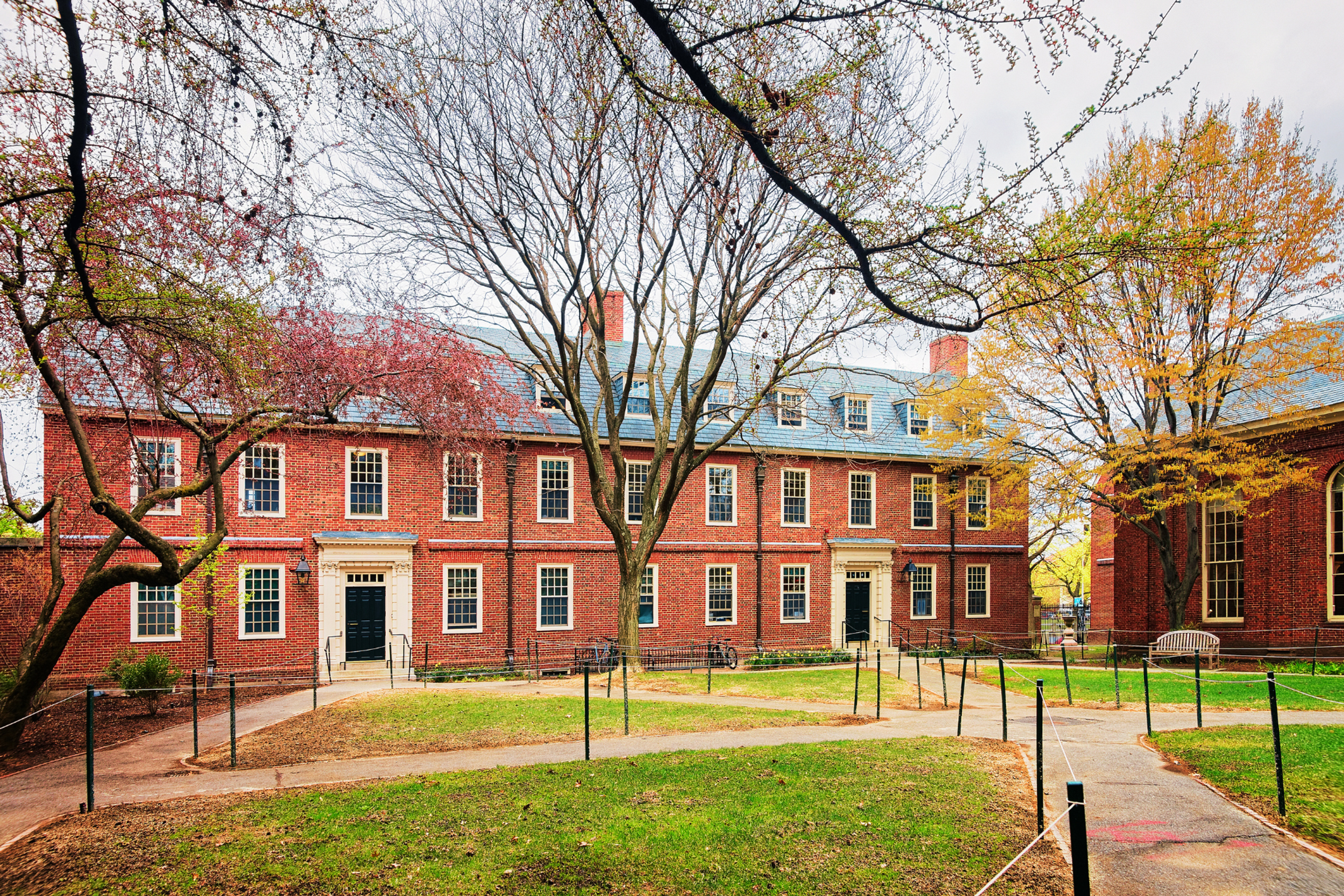University of Washington Medical School Acceptance Rate and Admissions Tips
Discover the acceptance rate and admissions tips for the University of Washington Medical School.
Posted June 13, 2025

Table of Contents
If you're interested in attending the University of Washington Medical School, you might be wondering about the acceptance rate and how to boost your chances of admission. In this comprehensive guide, we'll explore what makes the University of Washington Medical School unique, the latest acceptance rates, factors that affect admissions decisions, and tips for submitting a standout application.
What is the University of Washington Medical School?
Located in Seattle, Washington, the University of Washington Medical School is a highly regarded institution that offers a range of medical degree programs. These include the Doctor of Medicine (MD), Physician Assistant Program (PA), Doctor of Physical Therapy (DPT), and Doctor of Philosophy (PhD) in various fields of medical research. The medical school has ranked in the top 10 among medical schools for primary care offerings for over 20 years and attracts students from all over the world.
In addition to its degree programs, the University of Washington Medical School is also home to several research centers and institutes, including the Institute for Stem Cell and Regenerative Medicine, the Center for Health Equity, Diversity, and Inclusion, and the Institute of Translational Health Sciences. These centers and institutes provide opportunities for students and faculty to engage in cutting-edge research and collaborate with experts in their respective fields.
Latest University of Washington Medical School Acceptance Rates
The University of Washington Medical School is renowned for its selectivity, accepting only a small percentage of applicants each year. In 2021, the acceptance rate for the MD program was 3.5%, while the acceptance rate for the PA program was 3.1%. These numbers have been relatively consistent over the past few years.
It is important to note that the University of Washington Medical School has a highly competitive applicant pool, with many qualified candidates vying for a limited number of spots. The admissions process takes into account a variety of factors, including academic performance, extracurricular activities, and personal characteristics. Additionally, the school places a strong emphasis on diversity and seeks to admit students from a wide range of backgrounds and experiences.
Factors that Affect the University of Washington Medical School Acceptance Rate
The University of Washington Medical School considers a variety of factors when evaluating applicants. These include:
- Academic achievement: GPAs and MCAT scores are critical components of the application process.
- Work and volunteer experience: Experience working in healthcare-related fields, community service, and research can demonstrate passion and dedication to the medical field.
- Diversity: The school values diversity and looks for applicants who have unique experiences and perspectives.
- Personal qualities: Evidence of good communication skills, leadership, and integrity can help an applicant stand out.
Another factor that can affect the University of Washington Medical School acceptance rate is an applicant's interview performance. The school conducts interviews with selected applicants to assess their communication skills, professionalism, and fit with the school's values and mission. A strong interview performance can increase an applicant's chances of being accepted.
Additionally, the school may consider an applicant's geographic location. The University of Washington Medical School is committed to serving the healthcare needs of the Pacific Northwest region, and may give preference to applicants who have ties to the area or who have expressed a desire to practice medicine in the region after graduation.
What Makes the University of Washington Medical School Stand Out from Other Medical Schools?
The University of Washington Medical School is known for its emphasis on primary care and its commitment to serving underrepresented communities. The school's curriculum incorporates hands-on clinical experience early in the program, allowing students to get a feel for what working with patients is like. Additionally, the faculty is comprised of experts in various areas of medical research, providing students with access to cutting-edge research and mentorship opportunities.
Another factor that sets the University of Washington Medical School apart is its focus on interprofessional education. Students have the opportunity to work alongside and learn from professionals in other healthcare fields, such as nursing, pharmacy, and social work. This collaborative approach to education prepares students to work effectively in interdisciplinary teams, which is essential in providing comprehensive patient care.
Furthermore, the University of Washington Medical School is located in Seattle, a city known for its innovative healthcare industry. This provides students with unique opportunities to participate in research studies, internships, and clinical rotations at some of the top healthcare institutions in the country. The school also has partnerships with local hospitals and clinics, allowing students to gain practical experience in a variety of healthcare settings.
How to Improve Your Chances of Getting into the University of Washington Medical School
While the admissions process at the University of Washington Medical School is highly competitive, there are steps you can take to improve your chances of being accepted:
- Start early: Begin preparing your application materials and studying for the MCAT well in advance of the application deadline.
- Focus on academics: Aim to achieve a high GPA and score well on the MCAT exam.
- Gain experience: Participate in healthcare-related volunteer work, research, or internships to demonstrate your interest and commitment to the field.
- Show your unique qualities: Demonstrate your personal qualities, including leadership, teamwork, and communication skills, in your application materials.
- Practice interview skills: If you are invited to interview, make sure you prepare ahead of time, ready for common medical school interview questions and be ready to discuss your interest and qualifications for the program.
Another way to improve your chances of getting into the University of Washington Medical School is to network with current students and alumni. Attend information sessions and events hosted by the school, and reach out to current students or alumni to ask for advice and guidance. This can help you gain a better understanding of the school's culture and values, and demonstrate your interest and dedication to the program.
Additionally, consider taking on leadership roles in healthcare-related organizations or clubs. This can demonstrate your ability to take initiative and make a positive impact in the field, as well as showcase your passion for healthcare. Admissions committees often look for well-rounded applicants who have demonstrated leadership and a commitment to service, so this can be a valuable addition to your application.
Application Requirements and Deadlines for the University of Washington Medical School
The University of Washington Medical School has a strict set of application requirements, with specific deadlines that vary depending on the program. These requirements may include:
- Completed application form
- Official transcripts from all colleges and universities attended
- MCAT exam scores (numerically graded only; MCAT scores will no longer be required for admission to UW’s medical school after 2021)
- Letters of recommendation from professors, supervisors, or healthcare professionals
- Personal statement detailing your interest in the program and qualifications
- Application fee
Be sure to check the admissions requirements for the specific program you are interested in and meet all deadlines accordingly.
Tips for Writing a Compelling Personal Statement for the University of Washington Medical School
The personal statement is an essential component of the University of Washington Medical School application and should be carefully crafted to reflect your passion for the field of medicine. Here are a few tips for writing a standout personal statement:
- Be authentic: Write about your personal experiences and how they led you to pursue a career in medicine.
- Show, don't tell: Use specific examples to illustrate your qualities and achievements.
- Be concise: Stick to the word limit and avoid unnecessary details.
- Edit and revise: Have someone else read your personal statement and provide feedback.
Interview Process at the University of Washington Medical School: What to Expect and How to Prepare
If your application is selected, you may be invited to participate in an interview with the admissions committee. The interview is a chance for you to demonstrate not only your knowledge of medicine but also your communication skills and motivation to become a physician. Here are some tips for the interview:
- Research the school beforehand to show your interest and knowledge of its programs and mission.
- Dress professionally and arrive early.
- Be prepared to answer questions about your background, experiences, and why you want to become a physician.
- Be ready for ethical or situational questions, in addition to any clinical questions that may be asked.
- Ask thoughtful questions about the program and school to demonstrate your interest.
Costs and Financial Aid Options for Students at the University of Washington Medical School
The cost of attending the University of Washington Medical School varies depending on the program and residency status. However, the school is committed to making medical education accessible to all students and offers a range of financial aid options, including scholarships and grants, work-study programs, and low-interest loans. Students are encouraged to explore all available options and contact the school's financial aid office for guidance with any questions related to funding their education.
Life as a Student at the University of Washington Medical School: Campus Culture, Support Systems, and Extra-Curricular Activities
Life as a student at the University of Washington Medical School is rigorous but rewarding. The school provides a supportive learning environment with a range of resources available for students, including academic counseling, mental health services, and mentorship programs. Additionally, there are numerous extra-curricular activities and organizations available to students, including medical outreach programs, research opportunities, and community service projects.
Career Prospects for Graduates from the University of Washington Medical School
The University of Washington Medical School has a strong track record of producing successful graduates who go on to have fulfilling careers in the medical field. The school's reputation for primary care makes its graduates highly sought-after by employers, and many go on to work in underserved areas or pursue further education in medical specialties. Regardless of their career paths, graduates from the University of Washington Medical School leave equipped with the skills and knowledge needed to make a positive impact on the healthcare industry.
Alumni Success Stories from the University of Washington Medical School
Graduates from the University of Washington Medical School have gone on to make significant contributions to the field of healthcare. From groundbreaking medical research to compassionate patient care, the school's alumni have made a difference in countless lives. Some notable alumni include Linda Buck, a Nobel Prize-winning neuroscientist, and Tom Hansen, former commissioner of the Pac-10 Conference.
In conclusion, the University of Washington Medical School is a highly selective institution that offers a challenging but rewarding education for students interested in the medical field. With the right preparation and dedication, you can increase your chances of being accepted into the program and joining the ranks of successful medical professionals who have graduated from this prestigious institution.











